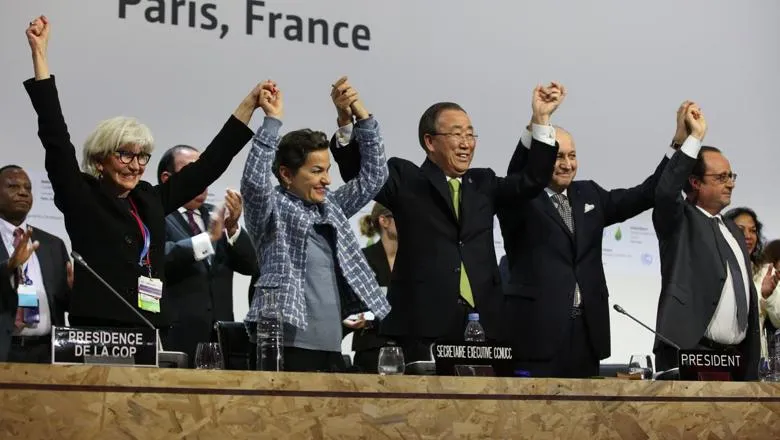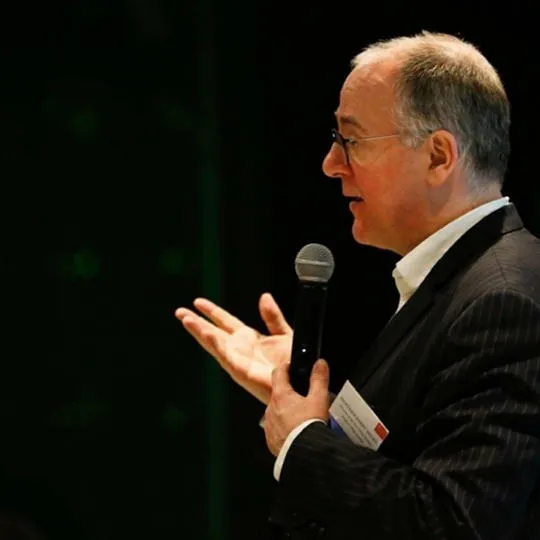Climate change is one of our most intractable political issues that we face today. It’s known as a wicked problem and it’s very divisive, both domestically and internationally.
Dr Leslie-Anne Duvic-Paoli, Deputy Director of Climate Law and Governance Centre
14 October 2021
The climate crisis is intimately linked to identity and politics, hears latest podcast episode
The latest episode of the ‘COP26: we got this’ podcast explores why political stances around the world vary so widely and how to overcome division when it comes to climate change.

The second episode of series prepares listeners for the geopolitical debate surrounding climate change, particularly how non-environmental disputes get in the way of both domestic and multilateral climate cooperation.
Hosts Dr Will J Grant (Australian National University) and Dr Leslie-Anne Duvic-Paoli (King's College London) compare politics in Australia and Europe, and the key issues affecting climate action.
They are joined by Dr Rebecca Colvin, Senior lecturer at the Crawford School of Public Policy, Australian National University, who explains the partisan relationship to climate change in Australia and why it’s so difficult to galvanise political action.
She suggests climate change is no longer a technical or scientific issue, but one that challenges the sense of self.
“For some people, [climate change] has become a part of their sense of self […] a climate change activist, a believer or a denier. So when we bring these issues into our social worlds, we bring in all these additional layers of complexity.
We can think that we are talking about technical and scientific issues, but really we are talking about social issues and playing into that space of who it is that gets to recognised and valued by society and who it is that feels that they’re being left behind.
Dr Rebecca Colvin, Senior lecturer at the Crawford School of Public Policy, Australian National University
They also discuss how to overcome political polarity, including how initiating conversations between different groups of people can begin to break down division.
“I think a really important thing to do is to start building interpersonal relationships across some of those social fault lines that have divided us on these issues.”
Guest Professor Kerry Brown, Director of the Lau China Institute at King's, highlights the pressure of domestic politics, as well as the importance of political presentation when it comes to climate change deals.
“Xi Jinping is regarded as being all powerful, but he has to answer a domestic constituency and one thing that is important, at the moment, is him looking strong and forceful in the international forum.
[…] a deal which is presented as politically weakening or political demeaning for China is going to be a problem. And Americans may present a deal in that way, even though that’s not the truth about the deal itself.
Professor Kerry Brown, Director of the Lau China Institute at King's
He hopes that post-COP26, there will be a sense that we are resolving some of the huge issues we are struggling with politically and beyond.
To find out more, listen and subscribe
Find the full episode on Acast or through your preferred podcast provider by searching for "COP26: we got this".
The COP26: we got this podcast is produced by King’s College London and The Australian National University Institute for Climate, Energy & Disaster Solutions.
It was produced as part of the King's COP26 Engagement Fund; which comprises of the King's Australia Partnership Seed Fund and the Menzies Australia Institute.


